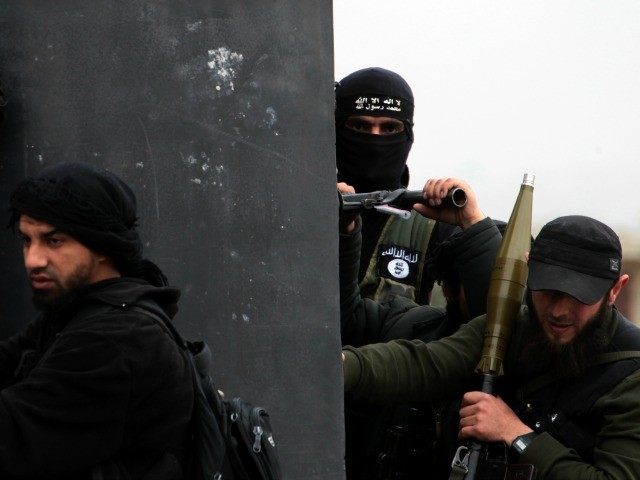Reuters reported on Thursday afternoon that “the United States and Turkey have signed an agreement to train and equip moderate Syrian opposition fighters,” an agreement that will evidently include several hundred U.S. troops, including special operations forces, training five thousand Syrian fighters over the next three years at bases outside Syria.
This deal comes as one of the biggest boosters of the enigmatic “moderate” Syrian opposition, former U.S. ambassador to Syria Robert Ford, seems to be giving up on both the combat prospects and moderate nature of these rebel forces.
Ford’s change of heart is a very big deal, and curiously under-reported, beyond a lengthy review of his recent comments at McClatchy News:
Robert Ford was always one of the Syrian rebels’ loudest cheerleaders in Washington, agitating from within a reluctant administration to arm vetted moderates to fight Bashar Assad’s brutal regime.
In recent weeks, however, Ford, the former U.S. ambassador to Syria who made news when he left government service a year ago with an angry critique of Obama administration policy, has dropped his call to provide weapons to the rebels. Instead, he’s become increasingly critical of them as disjointed and untrustworthy because they collaborate with jihadists.
The about-face, which is drawing murmurs among foreign policy analysts and Syrian opposition figures in Washington, is another sign that the so-called moderate rebel option is gone and the choices in Syria have narrowed to regime vs. extremists in a war that’s killed more than 200,000 people and displaced millions.
On the heels of meetings with rebel leaders in Turkey, Ford explained in an interview this week why his position has evolved: Without a strong central command or even agreement among regional players that al Qaida’s Nusra Front is an enemy, he said, the moderates stand little chance of becoming a viable force, whether against Assad or the extremists. He estimated that the remnants of the moderate rebels now number fewer than 20,000. They’re unable to attack and at this point are “very much fighting defensive battles.”
In short: It makes no sense to keep sending help to a losing side.
“We have to deal with reality as it is,” said Ford, who’s now with the Middle East Institute in Washington. “The people we have backed have not been strong enough to hold their ground against the Nusra Front.”
In fact, Ford went on to allege that many of the ostensibly “moderate” rebel leaders were collaborating with al Nusra Front, while falsely portraying it as a grassroots resistance force instead of an al-Qaeda affiliate. McClatchy notes that “the Obama Administration already has suffered a string of embarrassments involving supplies it’s donated to the rebels ending up in the hands of U.S.-designated terrorist groups,” including al Nusra Front.
Ford is serious enough about his lowered opinion of the “moderate” Syrian resistance to repeat it before an audience filled with prominent Syrian dissidents, in a speech he began by warning the audience they wouldn’t like it. Their reaction is described as “visibly surprised,” especially since they remember how Ford concluded his diplomatic career a year ago by strongly criticizing the Obama Administration for being slow to arm the good-guy rebels.
“For a long time, we have looked the other way while the Nusra Front and armed groups on the ground, some of whom are getting help from us, have coordinated in military operations against the regime,” Ford told those Syrian dissidents last month. “I think the days of us looking the other way are finished.”
He was apparently mistaken in that prediction, given news of the new commitment to arm the rebels by the U.S. and Turkey, which Ford has lately been accusing of helping al Nusra Front obscure its ties to al-Qaeda. He specifically dismissed the idea that five thousand upgraded fighters would be enough to tackle ISIS and/or Assad — but that’s exactly what they’re going to get. News reports strongly imply these U.S.-trained and equipped Syrian forces will be tasked with fighting ISIS, but is the rebellion against Assad really going to forget about the regime it set out to overthrow? It probably won’t be lost on the moderate Syrian rebels that if they manage to defeat ISIS — in a battle the American-Turkish plan anticipates lasting for over three years — they will be cementing Assad in his throne.

COMMENTS
Please let us know if you're having issues with commenting.